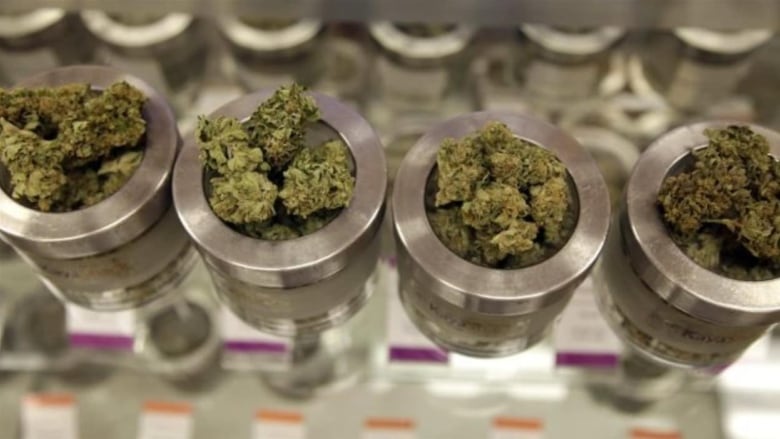Changes loom for cops and courts as weed becomes legal

As the sun rises on a Canada where recreational marijuana is now legal, changes are coming to the two main arms of the justice system: the cops and the courts.
One of those changes is obvious, as simple possession charges for marijuana should be a thing of the past in Canadian courtrooms — unless you were charged before legalization was enacted (though changes are coming on that front as well).
But more subtle shifts are also coming, as lawyers and police officers alike have to change the way they approach their jobs.
One of the main purposes of legalization was to lower the strain on the justice system in relation to cannabis, said Hamilton defense lawyer Beth Bromberg.
"So having fewer charges — if that's how things turn out — would reduce the burden obviously," Bromberg told CBC News.
The Public Prosecution Service of Canada (PPSC) is remaining mum on whether or not it expects legalization to lessen demands on the country's extremely taxed court system.
Even before legalization, most simple possession charges of 30 grams of marijuana or under were often diverted. In those cases, a person would be directed to do things like attend a drug treatment seminar or make a donation to charity in exchange for their charges being dropped.
Now, those charges won't make it to court at all, as the new legislation allows people to have 30 grams of pot on them in public at any given time. Bromberg said she expects a provision where people who are found with under 50 grams pay a fine and receive an absolute discharge, so nothing would appear on their record.
Shifting search warrants
Another thing that will undoubtedly change post-legalization is the way police apply for search warrants, Bromberg said. It was once fairly common for officers to apply to a judge for a search warrant based on the smell of pot, or the belief that people were growing it.
As of Wednesday, people are legally allowed grow up to four plants.
"The search warrants for grows will be really reduced," Bromberg said. "One of the things that we get a lot of cases for is people growing marijuana.
"So unless it's really large scale, the police are not going to be able to get search warrants."
Det. Sgt. Craig Leishman, the acting head of Hamilton police's vice and drugs unit, told CBC News that drug officers will just have to "alter their practices" when it comes to writing search warrants.
"It's not going to handcuff us," he said. "We'll just have to work within the guidelines of the cannabis act."
Coming down hard on impaired drivers
That's not to say the general public has carte blanche when it comes to cannabis — far from it. Bromberg says the new legislation is especially tough on anyone who sells or distributes pot to young people.
That's an offence that's now punishable by up to 14 years in prison. It's unlikely that a person would get the maximum, Bromberg says, but there's a much greater chance of a jail sentence with a maximum like that.
"I don't think a person would be receiving up to 14 years in prison unless they brought a gigantic truck to a school that said candy on it," she said. "But the point of this legislation is to make it very, very serious to distribute to children."
Similarly, Halton police said in a news release this week that anyone selling cannabis to young people will be a focus of the service's enforcement.
On top of large scale illegal grow operations and people who sell to children, the third area expected to be a real focus for law enforcement is impaired driving.
Const. Claus Wagner of Hamilton police told CBC News that unlike testing for alcohol impairment with a breathalyzer, police conduct standardized roadside tests to determine a driver's level of impairment with pot.
The first is called a standardized field sobriety test, in which an officer checks a driver's eyes, makes them stand on one leg for 30 seconds, and walk in a straight line.
Should a driver fail that test, they are then taken to a police station, where they undergo more tests conducted by an officer called a drug recognition evaluation. If a person fails that series of tests, they're charged, Wagner said, and then blood or saliva samples are taken to be tested at a lab and presented at trial.
Examining new technology
Wagner said police are still examining whether or not they will begin using a new federally-approved roadside drug screening device to identify impaired drivers.
The device, which received approval from the federal Department of Justice in August, is the Dräger DrugTest 5000, which tests saliva for cocaine and THC, the main psychoactive agent in cannabis.
Each unit of the Dräger DrugTest 5000 comes with an "analyzer" or reader that costs about $5,000, and cassettes that collect samples of saliva from drivers.
According to the federal government, the equipment will be made available to forces across the country, but it will still be up to police to decide what they want to use.
The OPP announced this week that it is going to buy the equipment to identify impaired drivers, but it cannot say how many units, or when.
Questions have been raised about the equipment's reliability in cold weather and the manufacturer says its recommended operating range is between 4 C and 40 C.
As well, a study published in February in the Journal of Analytical Toxicology, based on the use of the device in Norway, raised concerns about a number of false-positive and false-negative results.
With files from Muriel Draaisma

